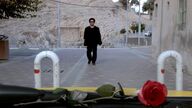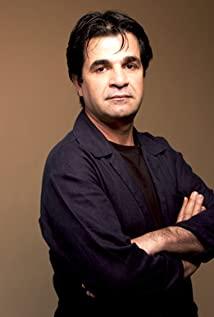What impresses me most about this movie is the director, who was jailed for filming, but the Iranian director Jafar Panasi never put down the camera and stopped creating.
The film begins with a yellow cab and its amateur driver on the road. The driver chatted with various passengers and recorded them with candid photography, showing the most authentic appearance of Iran through these conversations. The cry of the Iranian people seen in the film, but also the director's own voice. In the film, the driver played by Panasi hardly ever leaves the driver's seat, which coincides with the status quo that he is restricted from leaving the country. From the constantly changing passengers, the Iranian society is fully revealed. The female teacher and the unemployed uncle are arguing about the thief; a seriously injured husband made a will to give his wife his property. The wife doesn't seem to care about her husband's life or death, but is interested in the video of the will: The last one to ride is Panasi's The niece, the girl took the camera on the spot and wanted to make a movie, and forced the scavenger boy to cooperate with her to put on a good show. She said these were principles from the teacher's mouth, which really slapped Iran's film censorship system in the face. When the taxi was robbed at the end of the film and the picture turned black, it was even more invisible to show the imperfection of some systems in this country. This is the way the director uses the film to express his protest. The film is worthy of reference.
View more about Taxi reviews







